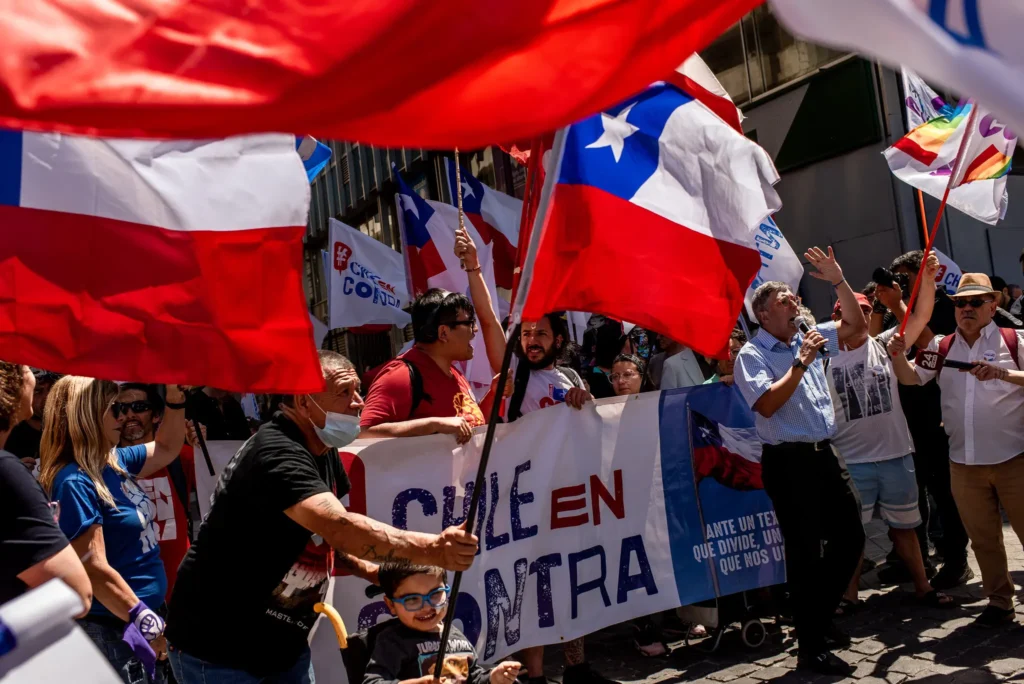
By: Marco Pagano, 2L
On November 12, 2019, President Piñera made a historic address, in what would become the most-watched presidential speech in modern Chilean history. This address announced a multipartisan agreement to overhaul the country’s constitution. The previous month had nationwide protests that left thirty-four people dead, 3,400 injured, and 8,800 arrested. Almost four million people participated in the protests, which included one of the largest marches in the nation’s history. Not even Piñera’s promises to increase the minimum wage, freeze energy prices, and improve public health services had appeased the public. Chileans wanted change —or so it seemed.
Few could have predicted that the fervent calls for constitutional reform and the subsequent election of the most left-wing president in Chile’s history would yield scarce results. Yet, five years later, as President Boric vows to repeal the amnesty that absolved Pinochet’s officials of any crimes against humanity, the country appears to have come to terms with the fact that its constitution is here to stay.
Although congress did call for a constitutional convention, nearly eighty percent of Chileans voted in favor of initiating the process. Yet, amidst pressure from the loud anti-institutionalist voices, mainstream parties agreed to ease the path for independents to gain seats in the convention. This skewed the convention’s composition towards a majority of single-issue candidates, some of whom received fewer than one hundred votes.
Led by a radical chairwoman who promised to reboot Chile, the Convention violated its foundational rules by going beyond its mandate and unilaterally overriding its two-thirds threshold to enact changes. The proposed constitution resembled what could have been decades of statutes and regulations smushed together into a booklet. Ecology, identity, parity, family, housing, internet access, and reproductive issues were all included in the draft. With the greatest turnout in Chilean history, the new constitution was overwhelmingly rejected.
Soon after, Congress called for a new convention, this time dominated by the right. The council’s recommendation, which aimed to enshrine the country’s free-market, laissez-faire economy into the constitution, was also rejected by the electorate, albeit by a smaller margin. President Boric then decreed that the constitutional process was closed, stating that politicians owed the Chilean people a debt. Just like that, the movement sparked by millions in protest came to an end, leaving the world with more questions than answers.
Perhaps it was polarization that obstructed meaningful change maybe Chileans never truly wanted change but instead projected external frustrations onto the government and the Constitution. Or, possibly, they realized that, compared to the rest of Latin America, the country is doing well. Reality is often more complex and nuanced than one would like it to be. What is certain, however, is that it is now time for Chile to move on, and, above all, heal.




